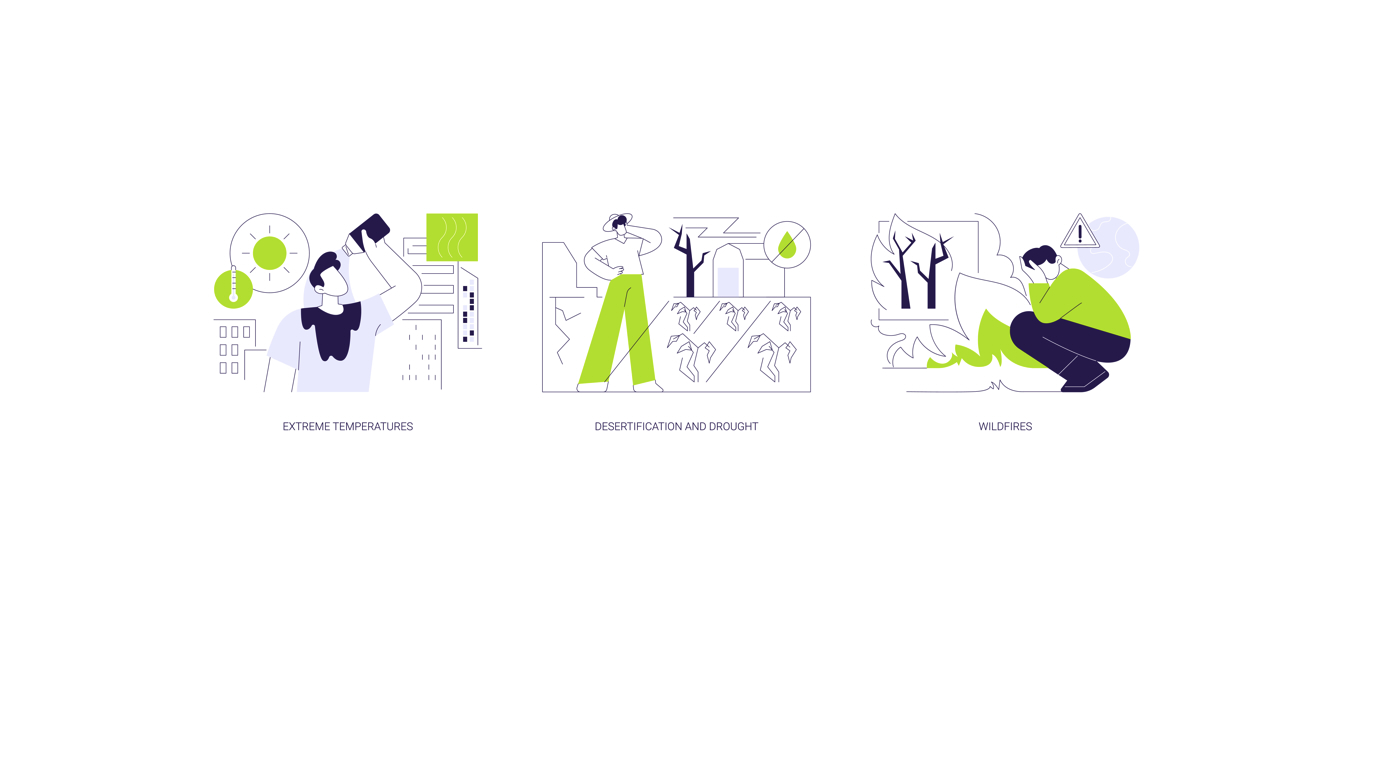SorintWellness: It's heating up in here!
-
Francesca Barrett Boomsma
- 10 Jul, 2024
- 03 Mins read

The sweltering heat of summer can have a profound impact on our moods, often leading to a range of emotional and physical responses. As temperatures soar, many of us experience increased irritability, fatigue, and a general sense of discomfort. This phenomenon is not just a matter of personal perception; scientific research has shown that heat can affect our cognitive function, stress levels, and overall mental wellbeing. Understanding how heat influences our moods is crucial, particularly in the workplace, where maintaining a positive and productive environment is important, even during the slow summer months. In this article, *SorintWellness *aims to address the irritability and fatigue that can plague us during the summer with 2 solutions: hydration and deep breathing practices.
Wondering why you’re feeling** foggy, irritable, and sluggish?** It may be your lack of hydration. During the summer, it's essential to increase water intake to compensate for the higher rates of water loss due to sweating. Sometimes we’re not even aware of how much we sweat! While individual needs can vary based on factors like body size, activity level, and overall health, a general guideline can be helpful.
**General Recommendations ** *Baseline Water Intake: *The National Academies of Sciences, Engineering, and Medicine recommend a baseline daily water intake of about 3.7 liters (125 ounces) for men and 2.7 liters (91 ounces) for women, including all beverages and food moisture.
Increased Need in Summer: During the summer, it's advisable to increase this amount by about 20-30% due to higher temperatures and increased sweating. This translates to an additional 0.7-1.1 liters (24-37 ounces) for men and 0.5-0.8 liters (17-27 ounces) for women.
*Activity Level Adjustments *Low Activity: Even with minimal physical activity, the heat can cause significant fluid loss. Adding at least 0.5 liters (17 ounces) to your daily intake is beneficial. Moderate Activity: For those engaging in regular moderate activities like walking or light exercise, an additional 1-1.5 liters (34-51 ounces) of water may be necessary. High Activity: For intense physical activities, especially outdoors, it's crucial to add at least 1.5-2 liters (51-68 ounces) to your daily intake, ensuring to drink before, during, and after exercise.
*Monitoring Hydration *Thirst: Always listen to your body's signals. Thirst is a clear indicator that you need more water. Urine Color: Aim for light-colored urine. Dark yellow or amber indicates dehydration. Other Signs: Headaches, dizziness, dry skin, and fatigue are also signs of dehydration.
*Practical Tips *Carry a Water Bottle: Keep a reusable water bottle with you to make it easier to drink water throughout the day. Infuse Water: Add natural flavors like lemon, cucumber, or mint to make water more appealing. Hydrating Foods: Include water-rich foods like watermelon, cucumbers, oranges, and strawberries in your diet. Set Reminders: Use apps or set alarms to remind you to drink water regularly. Avoid Diuretics: Limit consumption of alcohol and caffeine as they can increase fluid loss.
Another tip for improving the overall unenergetic and sluggish feeling that summer heat can bring relates to our breathing. Breathing significantly influences focus and alertness through its impact on the brain, nervous system, and overall physiology. Cue: the physiological sigh. **
*What is it? *The physiological sigh is a form of concentrated breathing which involves a deep inhalation, often followed by a second, smaller inhale, and then a long, slow exhale. Go ahead, try it now!
*Why could it be useful to practice? * Resetting the Breathing Rhythm: The physiological sigh helps reset the breathing rhythm by fully inflating the alveoli, the tiny air sacs in the lungs. This process ensures that the lungs are maximally expanded, facilitating efficient gas exchange. Balancing Oxygen and Carbon Dioxide Levels: By deeply inhaling and then slowly exhaling, the physiological sigh helps maintain a balance between oxygen and carbon dioxide levels in the blood. This balance is crucial for optimal cellular function and overall bodily health. Reducing Stress and Anxiety: The physiological sigh activates the parasympathetic nervous system, which promotes relaxation and counteracts the fight-or-flight response. The slow exhalation, in particular, helps calm the nervous system and can reduce feelings of stress and anxiety. Improving Focus and Mental Clarity: By ensuring that the brain receives an adequate supply of oxygen, the physiological sigh can enhance cognitive function, improve focus, and promote mental clarity.
Incorporating both improved hydration and deep breathing practices into daily routines can significantly enhance our overall physical, mental, and emotional wellbeing during the hot summer months. Try adding them into your daily workflow today! If you have any comments or inquiries, please reach out to* sorintwellness@sorint.com*